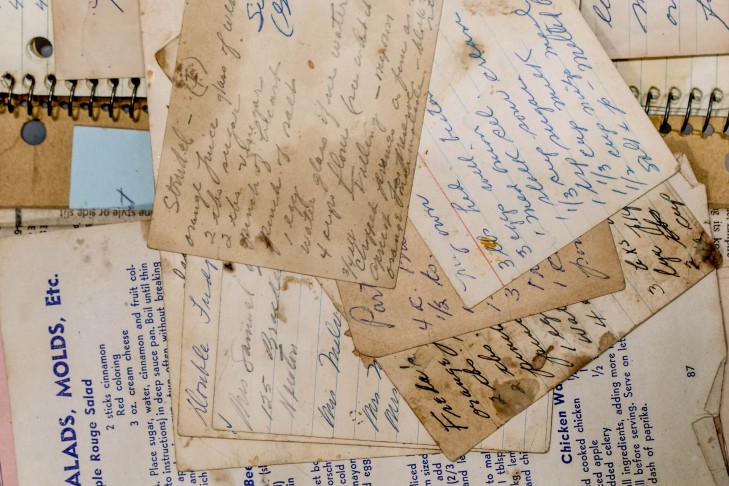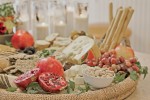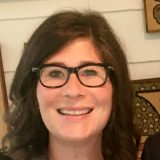In 1963, my grandmother helped to compile the “Rochester New York Hadassah Cookbook,” which, as of five years ago, was in its ninth printing and has sold more than 50,000 copies. So, it made sense that when I heard about the CJP Women’s Philanthropy cookbook project from my dear friend and cookbook senior editor, Jackie Finard-Hughes, I wanted in. I was excited to follow in my grandmother’s footsteps and help create a similarly lasting homage to our wonderful, diverse Jewish community here in Boston.
I was also thrilled because my involvement in this project reflected the strides and changes we have made as women since 1963, when my grandmother and the other women in the Rochester project were listed by their husbands’ names. My grandmother was Mrs. “Eli Rudin,” not “Miriam Rudin.” How ironic for a cookbook devoted to a women’s organization!
I was assigned to the spring chapter working group, led by our wonderful top chefs, Grunie Uminer and Deb Milgram, who created a comfortable atmosphere where we were all encouraged to bring our ideas and experiences to the table (pun intended!).
Our assignment was to come up with recipes suitable for Passover, Yom Ha’atzmaut and Shavuot. We met for the first time in the fall of 2016, when we came together to cook a few recipes and brainstorm some more. Knowing only one other person in my group, I was excited to meet other women who enjoyed cooking as much as I do. It also felt wonderful to be participating in such an actionable CJP event; our mission was clear, the work was tangible and the camaraderie was palpable.
The clear hit of that day’s cooking session was a Pesach-friendly granola, which we were all lucky enough to take home and share. We then set a schedule for future cooking dates, identifying a cooking leader for each session who would bring three recipes to test and all of the required ingredients.
Though I cook for a living and have an endless number of recipes in my repertoire, I knew the recipes I wanted to bring were those of my Sephardic mother-in-law, Elsie Navisky. Born in the mid-1940s in Cairo, Elsie, like most Middle Eastern Jews, fled her home country in the early 1960s, when a political regime change made life dangerous.
Elsie’s father was forced to “sell” the luxury department store he had started decades earlier to the government at a greatly reduced price. They left their apartment and all their belongings—clothes, furnishings and many valuables—behind. For the next several years, Elsie lived in Paris, France and Sao Paulo, Brazil, before putting down roots here in Boston in 1968.
Though my origins are thoroughly Rochester Ashkenazi, it is Elsie’s cooking that feels like home to me. It is simple food but done with a Middle Eastern twist, like roasted chicken and potatoes laced with turmeric and cinnamon, or a frittata made with spiced ground meat. I wanted to showcase her food in this book, a culinary tradition that often gets lost in the shuffle of our Ashkenazi-dominated Jewish culture here in the United States.
One recipe in particular, a leafy stew called molokhia, was perfect for our chapter; it’s what we eat at Passover instead of matzo ball soup. Additionally, besides the leaves themselves, molokhia is a dish made with common ingredients like beef or lamb stew meat, garlic and onions, making it easy for a home cook to try something out of their comfort zone.
When I suggested this to the group, they not only loved the idea, but also invited my mother-in-law along to cook with us. It was such a wonderful experience bringing Elsie into this group of women I had come to know and feel close to, who so enthusiastically welcomed her and her cultural heritage.
I’m pleased to say the molokhia and two other recipes of Elsie’s made it into the cookbook. Since her community of origin no longer exists, I am delighted that she and her fellow Egyptian Jews are permanently represented in a collection of recipes from her “new” Jewish community of Boston.
I am also proud of this community’s work. The meticulous compiling, tasting, testing and editing has created a snapshot of our diversity. The smells, flavors and feelings of our community can be replicated in kitchens in Boston and all around the country, just by opening the book and cooking.
And we even have our own names in it.
Order your copy of “From Our Kitchens: Recipes and Stories from the Boston Jewish Community” here.









